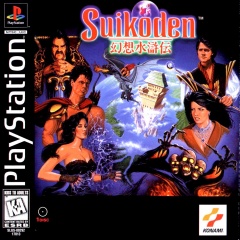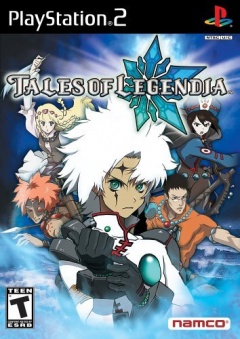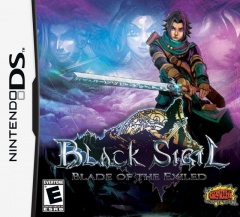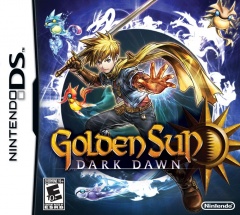random battles
Suikoden
 I tend to be conscious of the games I buy. When I plunk the cash onto
the counter, I've usually made the decision to do so months in advance.
I've read some previews, watched plenty of gameplay clips, and probably
played a demo (if available). This is normal for people to do
when they're about to shell out $60 and tax, but I tend to do my
research even when the game can be bought for a Hamilton. What can I
say? I'm kind of stingy. Chicks love a pennypincher.
I tend to be conscious of the games I buy. When I plunk the cash onto
the counter, I've usually made the decision to do so months in advance.
I've read some previews, watched plenty of gameplay clips, and probably
played a demo (if available). This is normal for people to do
when they're about to shell out $60 and tax, but I tend to do my
research even when the game can be bought for a Hamilton. What can I
say? I'm kind of stingy. Chicks love a pennypincher.
I indulged in a blind-buy some time ago, when a game called Suikoden went on sale from the infallible PlayStation Network for a scant three dollars. I guess I can't really call it a "blind" purchase, considering I'd heard of the series, knew it was some sort of JRPG, and recalled some praise for it throughout the years. Still, this was a small triumph for my freewheeling, devil-may-care side. The side that grins mischievously as a tossed beer can ends up in the trash rather than the recycling bin. The side that saunters across the street with reckless abandon when the orange hand in the crosswalk orders me to halt.
I've finally worked up the courage to start playing this recklessly-bought game. Will it turn out to be as thrilling as the initial purchase, or will I pledge to never blind-buy again?
Tales of Legendia
 As you might expect from someone whose primary consoles went from
Genesis to N64 and Gamecube, Japanese RPGs have never been my forte.
Though I've played bits and pieces of many, I'm having a hard time
thinking of a traditional JRPG cast in the menu-driven, Final Fantasy mold that I've
started and finished all by myself. Chrono Trigger may be the only title
that comes to mind.
As you might expect from someone whose primary consoles went from
Genesis to N64 and Gamecube, Japanese RPGs have never been my forte.
Though I've played bits and pieces of many, I'm having a hard time
thinking of a traditional JRPG cast in the menu-driven, Final Fantasy mold that I've
started and finished all by myself. Chrono Trigger may be the only title
that comes to mind.
Many of the RPGs from the land of the rising sun that I've completed are better described as Action RPGs (The World Ends With You, Mario & Luigi series). And if I had to name a favorite, it would probably be Tales of Symphonia. This Gamecube exclusive from Namco quickly enamored me with its excellent mix of real time combat and menu-based management. I don't think I'd ever had so much fun in a JRPG: the exciting dodges, blocks, and combos in brawls on the front lines were perfectly complemented by magic, item, and strategy commands for party members through the pause menu. It's the finest marriage of Action and RPG I've come across.
I've only played the two Symphonia-branded titles in the storied Tales series, so I decided it was time to pick up another. I remembered hearing about Tales of Legendia for the PS2 back when it hit shelves for the first time, so I figured I'd pick it up now that I'm in the mood for a fat, juicy adventure. Does it live up to its franchise name, or is this Tale not worth the time?
Black Sigil: Blade of the Exiled
 During the Super Nintendo era, Squaresoft was peaking with Secret of Mana, Final Fantasy VI, and Chrono Trigger. The developer defined the Japanese RPG genre with those titles and also completely owned the marketplace for years to come. It’s easily arguable that Square has since lost the JRPG title to other developers such as Atlus (with its recent bit of awesomeness titled Radiant Historia in particular), but they’ll never have their triumphant 16-bit period taken away from them.
During the Super Nintendo era, Squaresoft was peaking with Secret of Mana, Final Fantasy VI, and Chrono Trigger. The developer defined the Japanese RPG genre with those titles and also completely owned the marketplace for years to come. It’s easily arguable that Square has since lost the JRPG title to other developers such as Atlus (with its recent bit of awesomeness titled Radiant Historia in particular), but they’ll never have their triumphant 16-bit period taken away from them.
Black Sigil: Blade of the Exiled is a love letter to that era. With sprites and animations seemingly ripped straight out of Chrono Trigger and Final Fantasy VI, and a story that sounds by-the-formula familiar to fans of the genre, this 2009 Nintendo DS release appears to be just another Japanese RPG title. But surprisingly, Black Sigil was developed in Montreal, so yes, this is one of those rare Canadian Japanese RPGs.
Developed by Studio Archcraft and published by Graffiti Entertainment, Black Sigil is also a bit of an indie title. The credits listed the same eight names over and over while the title was so long in development that it was originally targeted for the Game Boy Advance.
Unfortunately, the team had their goals so loftily set that I believe they lost sight of what made Squaresoft’s games so great: they were fun. Black Sigil is plagued by some major issues that most people will find the game unplayable beyond a few hours. I stuck it out though, and here’s my review.
Golden Sun: Dark Dawn
 The Golden Sun series and I go back to 2001 when the original Golden Sun was released. I played through the game slowly, and forced myself to finish it when Golden Sun: The Lost Age was on the cusp of its release. This was one of those rare titles that let you import data from its prequel via a very (very) long code. This code contained all your party’s information, ready to continue on in their next adventure.
The Golden Sun series and I go back to 2001 when the original Golden Sun was released. I played through the game slowly, and forced myself to finish it when Golden Sun: The Lost Age was on the cusp of its release. This was one of those rare titles that let you import data from its prequel via a very (very) long code. This code contained all your party’s information, ready to continue on in their next adventure.
I spent more time inputting that code than actually playing The Lost Age, and that was that, I forgot about Golden Sun from 2003 until 2010 when Nintendo announced Golden Sun: Dark Dawn at E3. Since my progress had stalled for months on Dragon Quest IX and I was finished with Infinite Space, I decided to pick it up when the game was released in late November.
The reviews have been pretty solid for Dark Dawn and I’m sure sales are swift (almost every Nintendo published title is successful), but how would my return to Weyard fare? It’s been seven long years and my interest in the series is minimal. Here’s my full review of Golden Sun: Dark Dawn for the Nintendo DS.
For those interested, we also have a first hour review of Dark Dawn written by a huge Golden Sun fan, Jonathan Ramundi.
